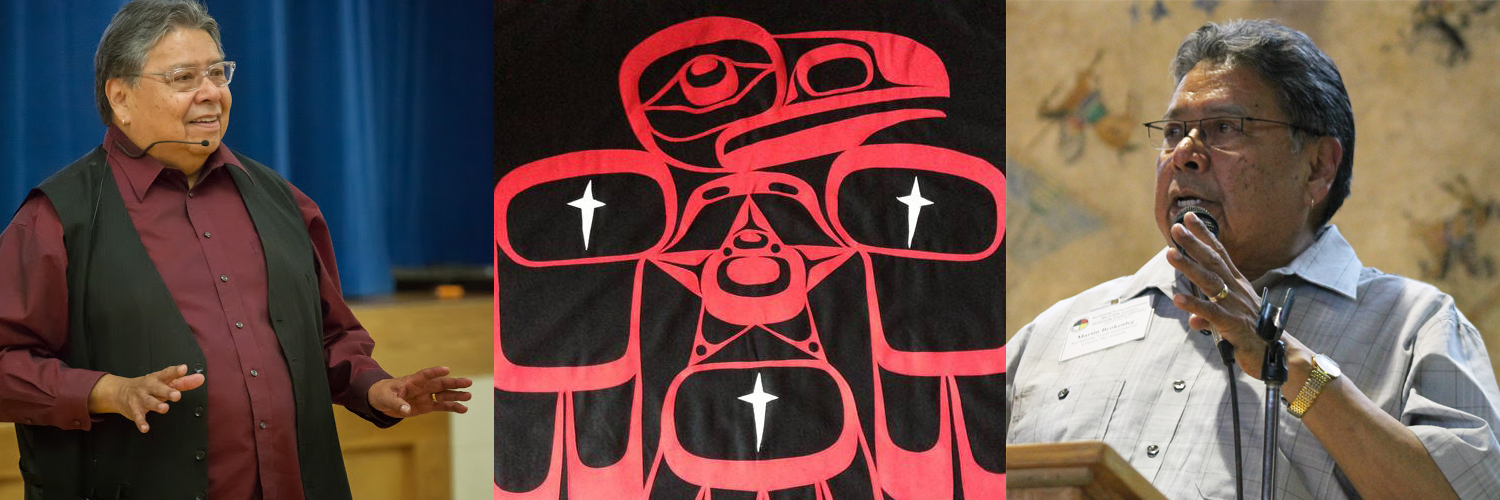
Preferred Topics
Reclaiming Youth at Risk
For thousands of years, American Indian cultures nourished respectful and courageous children without employing punitive discipline. Now, recent youth development research is revealing the essential elements in raising confident, caring children. Drawing on his research with Drs. Larry Brendtro and Steve Van Bockern in their book, Reclaiming Youth at Risk, Dr. Martin Brokenleg presents information on the Circle of Courage which offers concrete strategies for creating environments in which all young people can grow and flourish.
Growing Your Own Kids
Parenting is not for the faint of heart. Parents face challenges today that are age old; keeping our children safe and connected to those who love them, keeping them physically and spiritually healthy, supporting their learning and growth, and empowering them to live productive lives. In this session we review parenting challenges, the need for diverse parenting styles and examine the way parents and communities can help kids grow to be their best through the lens of the Circle of Courage. The picture frame for this session includes the songs, dances and stories of Aboriginal life. These are the tools that make learning an experience of the heart.
Intergenerational Trauma
Some populations display complex social patterns that are the result of history. Aboriginal youth display intergenerational trauma but usually receive symptom treatment. The Circle of Courage transforms the foundation conditions for Native or any other youth.
Creating a Positive Youth Culture
Currently, many strategies are based on cultural views of youth that are negative. For example punishment is used instead of discipline to teach children. This session explores specific strategies in classroom management and parenting techniques that demonstrate a youth-positive environment.
Building Strengths – Early Childhood
Those who work with young children have the best opportunity to lay the foundation of experiences that strengthen a child from within. The Circle of Courage philosophy operates at the level where all children are alike regardless of the ethnic community from which they come. Positive youth culture works, and research documents that positive approaches are effective in actually helping children.
The Eagle: an example of Aboriginal Spirituality from the Prairies
One of the hallmarks for recovering strength in Aboriginal healing is the revival and utilization of traditional ceremonies. This session develops models that support non-Aboriginal understanding of the ancient spiritual traditions from the prairies. The models will be used to explore the spiritual experiences of Aboriginal people historically and into present times.
Mobilizing Communities
Some populations display complex social patterns that are the result of history. Aboriginal youth display inter-generational trauma but usually receive symptom treatment. The Circle of Courage transforms the foundation conditions for Native or any other youth. Returning to traditional Aboriginal ways of raising youth will restore youth to the heart and mindset that supported survival of indigenous peoples through many centuries.
Culture in the Classroom
“I teach content.”
“I treat all my students alike.”
“Any student can learn my subject area.”
These statements are signs of a teacher who does not see the importance of cultural skills in the classroom. Find out what you can learn to make your classroom effective and fair for today’s students. Aboriginal students are the miner’s canaries of your classroom when it comes to culture in the classroom.
For a complete list of topics click here.